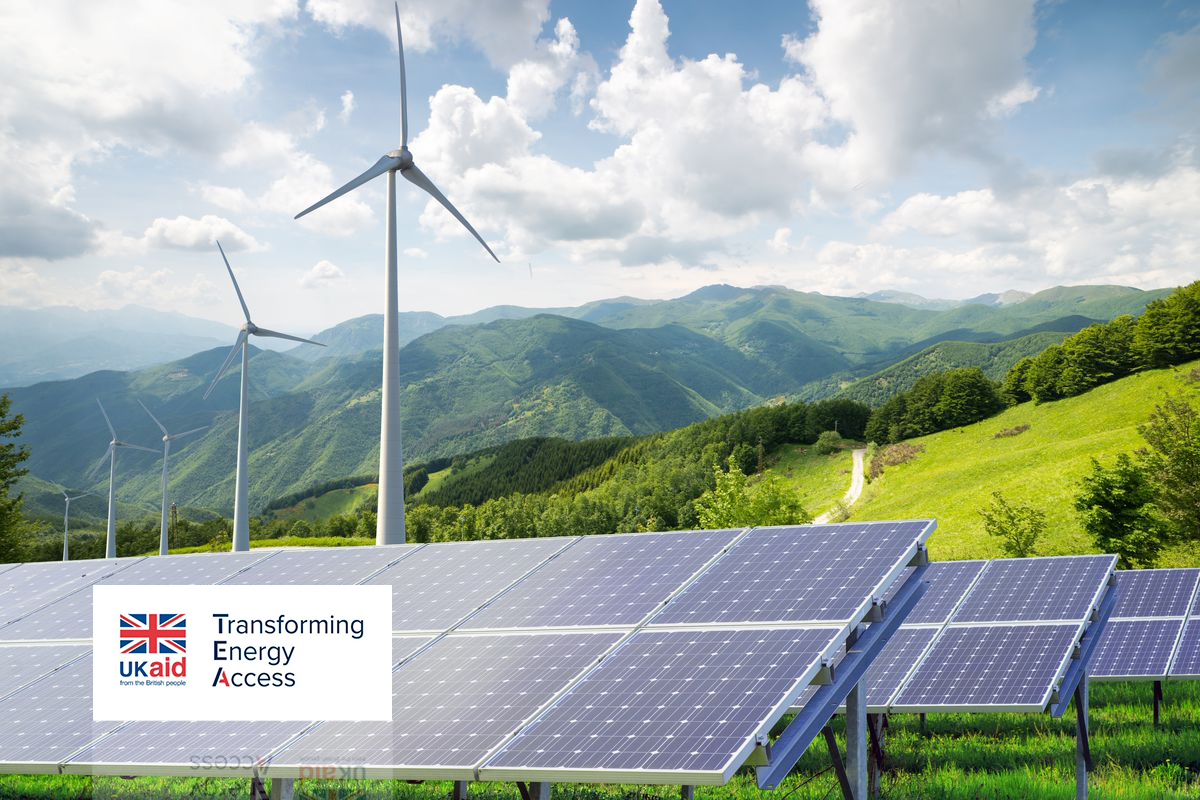MPhil. Clean Energy and Environment

Programme Structure
First Semester
ENS 802 Environment and Climate Change
|
This course examines the effects of anthropogenic activities, the factors on the environment, and climatic conditions as well as mitigation factors, potential costs, and benefits.
The objective of the course is to:
|
ENS 821 Environmental Stewardship and Waste Management
|
The course deals with the social, economic, and political significance of environmental stewardship as well as understand different types of waste, their handling, storage, and disposal requirements. It examines waste and waste management systems. Objectives The objective of the course is to:
and their potential effect on the environment.
|
ENS 823 Renewable Energy and Society
The course focuses on the relationship between the technologies of renewable energy systems and the societies as well as the policies that influence the development of energy supply and demand, processes, and institutional arrangements.
Objectives
The objective of the course is to:
ENS 825 Artificial Intelligence in Renewable Energy
|
The course discusses key concepts that underline artificial intelligence (AI), and their applications within renewable and sustain- able energy settings such as the theory and algorithms of Machine Learning for forecasting, prediction as well as conservation of energy. Objectives The objective of the course is to: Predict future performance of energy resources using AI
|
ENS 827 Local Solutions for Energy Access
|
Objectives The objective of the course is to:
|
SGS 801 Academic Writing for Graduate Students
|
The course offers the student an opportunity to acquire and develop rhetorical knowledge and practices for writing discipline-specific contexts with a focus on other practical issues in research writing and publishing, including how to respond appropriately to reviewer comments. Objectives The objective of the course is to enable students to i. Write the theoretical, procedural, and practical aspects of genres and part genres within discipline-specific contexts ii.Write and publish including how to respond appropriately to reviewer comments iii.Write texts in support of research career |
Second Semester
ENS 806 Research Methods
The course provides hands-on experience to students on theoretical/conceptual framework and modelling, statistical tools, data collection and analysis, problem identification and objectives setting, literature-searching skills to enable them write research proposals.
Objectives
The objective of the course is to:
- Apply statistical tools, knowledge and computing skills to research
- Explain basic concepts of research, variables operationalization, sampling, reliability and validity
- Explain quantitative, qualitative, and mixed methods of research
- Formulate research questions and hypotheses
- Analyse the appropriate method and variables needed for research questions
- Write a good research proposal
ENS 822 Energy and Gender
|
This course offers students the opportunity to understand gender dimensions of the energy sector such as gender barriers that contribute towards poverty, health risks and other issues affecting women will be discussed as well. Objectives The objective of the course to:
|
ENS 824 Entrepreneurship and Innovation in Renewable Energy
This course equips students with skills in renewable energy entrepreneurship and data management. Emphasis will also be placed on organizing and financing new projects, current trends, and e-commerce.
-
Objectives
The objective of the course is to:
Identify key concepts underpinning
-
-
entrepreneurship and its application in the recognition and exploitation of product/ service/ process opportunities
-
Examine key concepts underpinning innovation and the issues associated with developing and sustaining innovation within organizations
-
Design creative strategies for pursuing, exploiting, and developing new opportunities
-
Assess issues associated with securing and managing financial resources in new and established organizations.
-
ENS 826 Appliances for Off-Grid Communities
|
Description This multi-disciplinary course focus on the insights into the technical, environmental, socio-economic, policy, and business aspects of off-grid appliances that improve quality of life, livelihoods, local economies, and climate resilience.
The objective of the course is to:
|
ENS 828 Mini-Grids Planning and Design
|
The course focuses on the impart of holistic, high-level, practical skills to plan and complete a technical design for a mini-grid to support sustainable energy access for off-grid communities.
The objective of the course is to:
Develop fertilizer business plans |
ENS 832 Bioenergy Technologies
|
The course will focus on overview of biologically-based processes for bio-energy and biofuel production. Topics of interest include bioethanol, biodiesel, bioelectrical systems, methane and hydrogen production. Objectives The objective of the course is to:
|
ENS 834 Solar-Hydro-Wind Technologies
|
Description This course highlights the past, present, and future solar thermal technologies; fundamentals of solar radiation; solar cooling; components of concentrated solar power plants and sizing of solar thermal plants. Objectives The objective of the course is to i. Assess solar data (radiation total, diffuse, direct, sunshine duration, etc). ii. Design simple solar thermal dryers, thermal heating, and thermal cooling systems for diverse applications. iii. Examine hydro energy technologies and their applications |
iv. Appreciate wind energy technologies and their applications
ENS 836 Energy and Geopolitics
|
The course will assess the profound transformations in the world energy landscape due to rapid technological change and concern about climate change. A review of global energy security and how key countries and regions view their energy challenges and strengths will be carried out. It will focus on evaluation of the considerations of impact international relations and strategies, and how energy security can be shaped by geopolitical factors, e.g., the rise of nationalism and weakening of the post-World War II global order. Objectives The objective of the course is to: . Describe the major energy security issues facing the world and specific regions and countriestoday and how this may evolve going forward . Discuss how particular countries and regions view their energy strengths and challenges and how this perception impacts foreign and security policies. . Explain how geopolitics might affect energy trends and how geopolitics could be impacted byenergy developments
|



